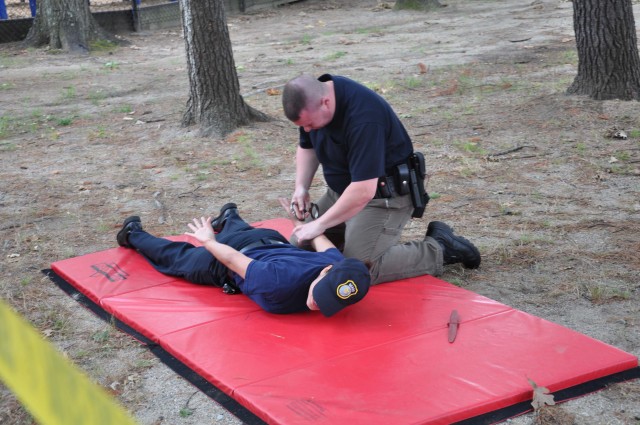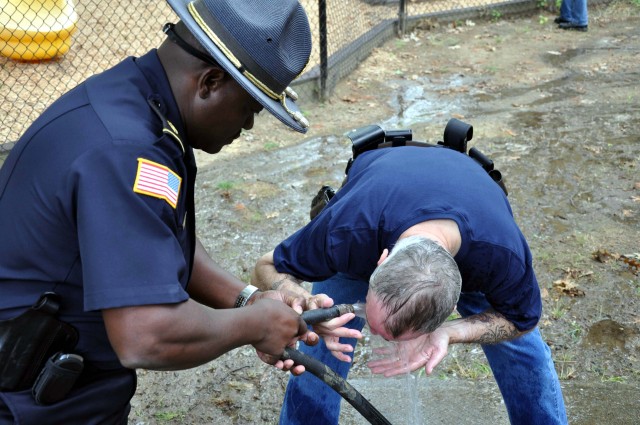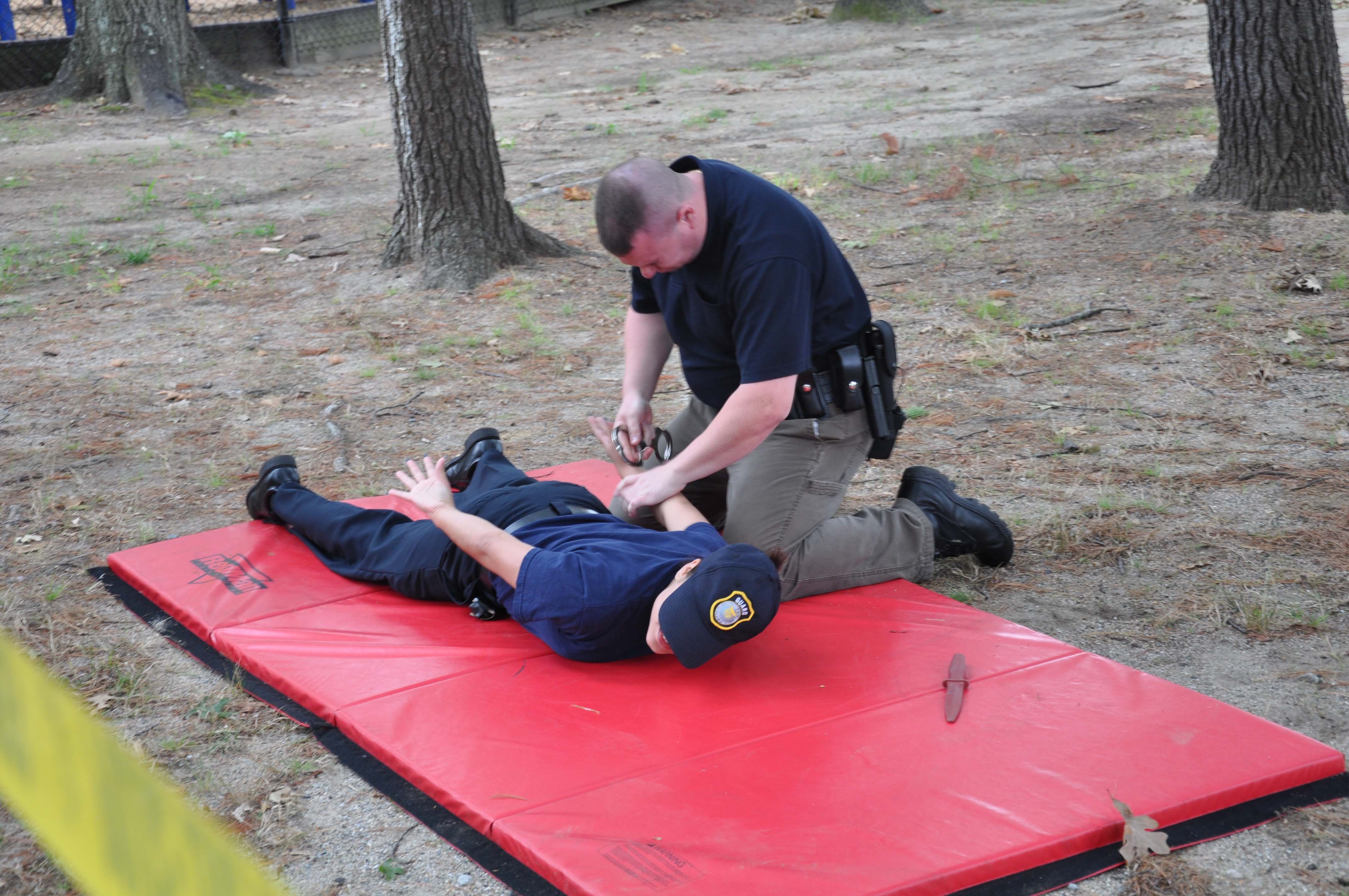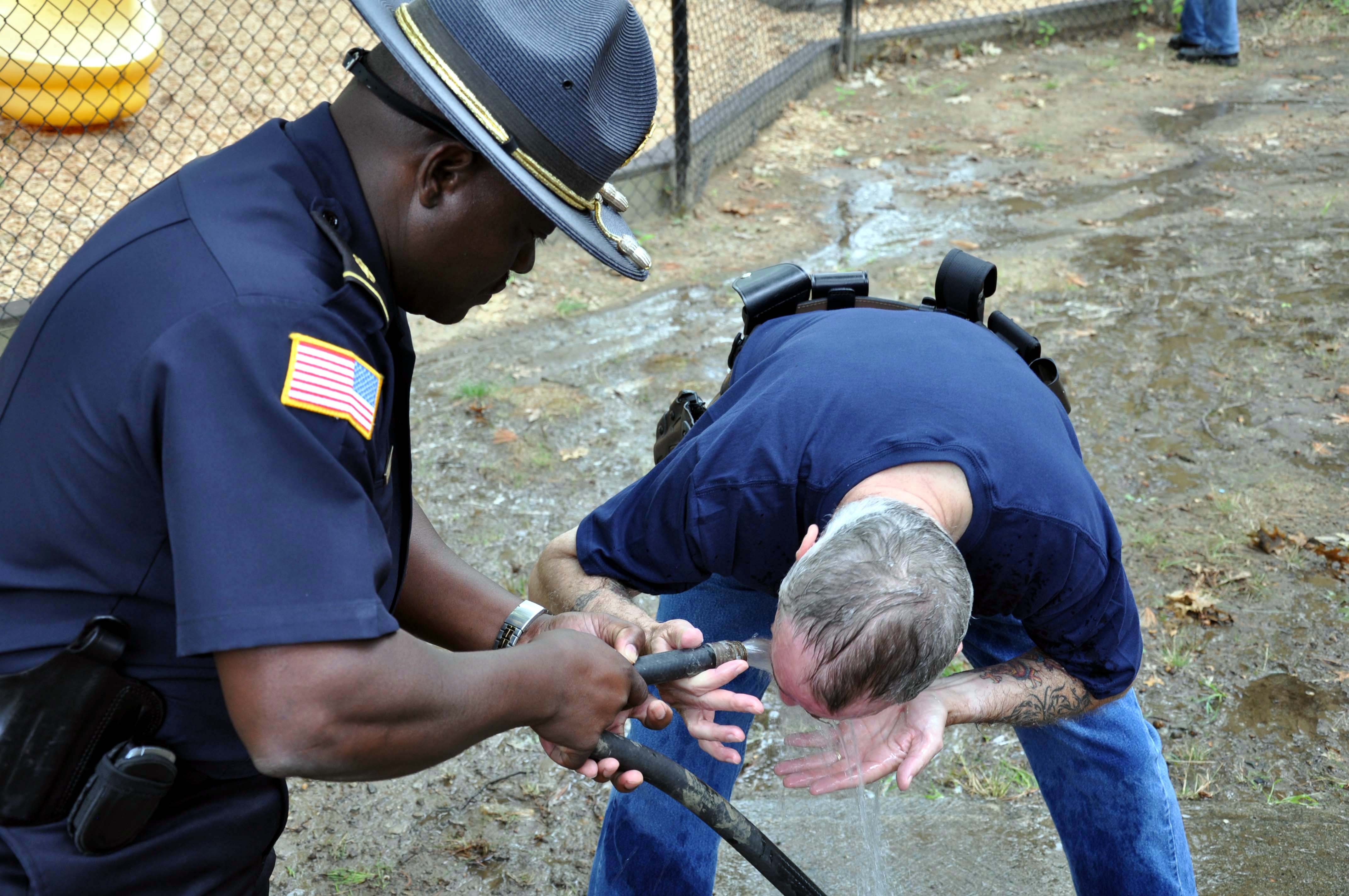It's one thing to apply training to a realistic situation. It's quite another to do it while your vision and breathing are compromised.
A number of new Department of the Army security guards at U.S. Army Garrison-Natick learned that lesson in early September when, in training, they were contaminated with pepper spray and then asked to use various amounts of force to ultimately apprehend an armed suspect.
"It teaches them how to fight through the pain of being contaminated in order to subdue any suspect," said Police Chief Leonard Lovett of the USAG-Natick Directorate of Emergency Services.
The training sessions took place in advance of the Sept. 26, 2010, conversion from contract to DA security guards at USAG-Natick. Lieutenant Dave McCrillis conducted the training. After spraying the guards, McCrillis put them through a drill in which they used their batons, hands, knees, feet and - finally - sidearms as they disarmed and handcuffed a suspect carrying a knife.
"What we're really looking for out there, too, is control," McCrillis said. "That's why I wouldn't let them move on until I'm sure that they're hitting the target. This is a really good group."
"I thought I did OK," said Chris Holmes, an ex-Marine military policeman who had been sprayed in the past. "It didn't really hit me until after the cuffing part. It was burning, but not as bad as before. I mean, not that I can say I enjoyed it, but it was way better."
After they were sprayed and completed the brief exercise, the guards had their faces rinsed immediately.
"What we use is ... a soap solution mixed with water," Lovett said. "You wash your face, and you decontaminate a lot quicker."
How long it takes to overcome the spray's effects will vary, according to Lovett.
"It can take anywhere from five (minutes) to hours," Lovett said. "It just all depends on the individual and their tolerance to the pepper spray."
Not only did the training qualify guards to carry the spray, it introduced them to its effects and showed them how to administer first aid. Lovett said the training allowed the guards to "fully understand the effect."
"I told them, everybody has a pain threshold," McCrillis said. "This is going to take you to ten." As McCrillis noted, the pepper spray, batons and handcuffs carried by the guards are just means to an end. "Our ultimate goal is to seek control," McCrillis said. "These are all just tools."




Social Sharing